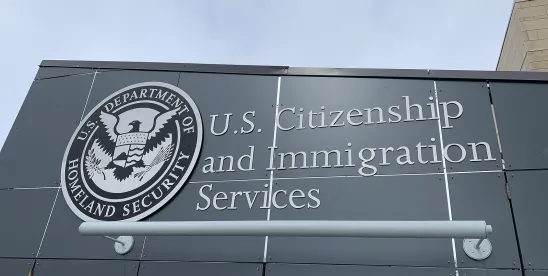On August 15, 2025, U.S. Citizenship and Immigration Services (USCIS) issued a significant policy memorandum that changes how immigration officers evaluate the “good moral character” requirement for naturalization applicants. This new guidance represents a substantial shift from previous practices and will likely impact how citizenship applications are adjudicated going forward.
Summary of Good Moral Character Criteria
The good moral character requirement has long been a cornerstone of U.S. naturalization law. To become a naturalized U.S. citizen, applicants must demonstrate good moral character as dictated by immigration law. Typically, this assessment covers the five-year period leading up to the submission of Form N-400, although those married to U.S. citizens may be eligible for a reduced evaluation period of three years. Immigration officials assess each applicant individually, applying the preponderance of evidence standard to determine if the applicant likely meets the criteria. Traditionally, these evaluations concentrated on identifying disqualifying issues like specific criminal activities, drug-related offenses, fraud, and misrepresentation. The absence of such disqualifying factors usually led to a positive assessment.
What’s Changing Under the New Policy
The August 15 memo signals USCIS’s return to a more comprehensive, “totality of circumstances” approach. The agency now explicitly directs officers to evaluate not just the absence of misconduct, but to actively weigh an applicant’s positive contributions to their community.
Under the new guidance, USCIS will place greater emphasis on positive factors, including:
- Sustained community involvement and contributions
- Family caregiving responsibilities and ties to the United States
- Educational achievements
- Stable employment history and professional accomplishments
- Length of lawful residence in the United States
- Compliance with tax obligations and financial responsibility
The memo also broadens the scope of conduct that officers may consider disqualifying. Beyond traditional criminal bars, officers are now directed to examine:
- Conditional bars such as multiple DUI convictions, unlawful voting, or drug offenses
- Conduct that, while technically legal, may be “inconsistent with civic responsibility,” such as repeated traffic violations, harassment, or aggressive solicitation
- Any behavior that doesn’t align with the “average behavior” of citizens in the applicant’s community
The policy places increased emphasis on evidence of genuine rehabilitation for applicants with past issues. Acceptable evidence may include:
- Compliance with probation or court-ordered conditions
- Payment of overdue taxes or child support
- Community testimony from credible sources
- Evidence of mentoring others with similar past challenges
Broader Immigration Policy Context
This naturalization policy change is part of a wider immigration enforcement initiative by the current administration. Simultaneously, USCIS has implemented new guidance directing officers to consider whether foreign beneficiaries support “anti-American” ideologies or organizations when adjudicating various immigration benefit requests, including employment authorization documents and adjustment of status applications.
The agency has also expanded social media vetting across multiple benefit categories, indicating a systematic approach to more intensive background scrutiny throughout the immigration system. These parallel developments suggest that naturalization applicants may face heightened review not only of their moral character but also of their ideological affiliations and online activities.
Practical Implications for Applicants
This policy shift will likely result in more thorough evaluations of naturalization applications. Applicants should expect:
- More Comprehensive Background Reviews: Officers will conduct deeper investigations into applicants’ civic behavior, financial history, community reputation, and potentially social media presence.
- Increased Documentation Requirements: Applicants may need to proactively submit evidence of positive community contributions, volunteer work, educational achievements, and other favorable factors.
- Longer Processing Times: The more holistic review process may result in extended processing periods and increased requests for additional evidence.
- Higher Potential for Denial: The expanded discretion given to officers could lead to more subjective denials based on conduct that previously may not have been disqualifying.
Looking Ahead
While the memo provides guidance on USCIS’s new approach, many questions remain about implementation. The policy’s emphasis on judgments about “civic responsibility” and “average behavior” may face legal challenges based on due process concerns and the potential for inconsistent application.
This policy represents a fundamental shift in how USCIS views the pathway to citizenship—moving from a largely administrative process to one that explicitly evaluates an applicant’s worthiness for what the agency calls the privilege of citizenship. As USCIS stated, “U.S. citizenship is the gold standard of citizenship — it should only be offered to the world’s best of the best.”



 />i
/>i

